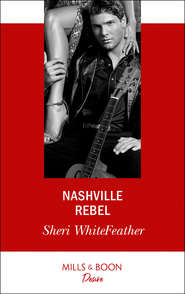По всем вопросам обращайтесь на: info@litportal.ru
(©) 2003-2024.
✖
The Heart of a Stranger
Автор
Год написания книги
2018
Настройки чтения
Размер шрифта
Высота строк
Поля
“Can we get pudding and watch TV?” Nina chirped. She always spoke for her sister, making plans for both of them. Today they wore matching T-shirts and identical ponytails. They insisted on being groomed with the same clothes, the same shoes, the same accessories. If Nina sported a red hair ribbon, Paige did, too. If Paige picked a lavender dress from the mall, Nina decided lavender was her new favorite color, as well.
Lourdes granted them permission to follow Amy, and the trio scattered, leaving her and Juan alone.
Silence drifted between them.
Awkward silence.
Lourdes tasted the pasta salad, then wished she hadn’t. Suddenly she felt self-conscious chewing in front of him.
He began gathering crayons and dumping them into the plastic container in which the twins kept them.
She glanced at the cross around his neck. As usual, it dangled near his heart, shining like a memory.
Should she say something? Tell him it had once belonged to her?
No, she couldn’t. Not now. Not this soon. She wasn’t ready to spill her emotions. Or to explain that Cáco thought his arrival at the ranch was fate.
“Have you had lunch?” she asked instead.
“Cáco made soup and sandwiches. I ate with her and the girls.” He studied a broken crayon, a waxy, worn-down shade of blue. “I’m sorry if I said some strange things.”
She tried for a casual air. “Strange things?”
“When my brain was bumbled.”
“You didn’t.” But he did, she thought. He’d said plenty of strange things. Sexy, she-was-his-dream things. “I mean, it’s okay. You were confused.” But he seemed focused today, completely aware of his surroundings. He still appeared tired, though, as if he needed a nap.
“Are you ready to talk to the police?” she asked.
He shuffled the broken pieces of the blue crayon. “To question them about missing persons in the area? No, I’m not. I’d prefer to regain my memory first. Cáco is convinced my amnesia is only temporary.”
“Juan, someone is probably worried about you, wondering where you are. Surely you have family somewhere.” Dare she say it? “A wife. Children.”
“I’m not married,” he responded quickly.
Too quickly? she wondered.
“How can you be sure?”
“Because I can feel things about myself. And I know I’m not married. There’s no one special in my life. Nor do I have children.”
He made a troubled face, and she suspected some of the things he “felt” about himself made him uncomfortable.
“Cáco says I need some time to adjust.”
She picked at her sandwich. Was he avoiding his real identity on purpose? Hiding from mysterious shadows? From dimly lit corners? Or was he simply trying to make peace with his empty mind?
Now wasn’t the time to ask.
She would let him adjust, and then she would question him.
Because Lourdes Quinterez had the right to know what kind of man Juan Guapo truly was.
Three
At the crack of dawn, Lourdes brushed her teeth. She turned off the faucet, then heard voices arguing—an annoyed masculine bass and a sharp feminine pitch—penetrating the oak walls.
Juan and Cáco?
What in heaven’s name was going on?
She grabbed her robe and slipped it over her nightgown. With a quick hand, she smoothed her hair and headed to the living room, where the disagreement was taking place.
Juan and Cáco faced each other. She huffed out an annoyed breath, and he jammed his hands in his pockets and frowned.
He appeared to be dressed to go out, Lourdes noticed. He wore the clothes he’d arrived in, right down to the mended tear on his sleeve. The bloodstains had washed out, but not completely.
Had he changed his mind? Had he called the sheriff’s station? Was a deputy due to arrive to take Juan into town?
“What’s going on?” Lourdes asked. Juan and Cáco had grown silent, neither arguing their case in front of her.
The old woman spoke up. “He thinks he’s well enough to go work with you today.”
To work? With her? What in the world had brought that on?
“I am well enough.” His scowl remained firmly in place. “And it’s time for me to earn my keep around here. To repay what’s been done for me.” He shifted to look at Lourdes. “Cáco told me you’re short-staffed. That you had to borrow a ranch hand.”
Lourdes didn’t get the opportunity to respond. Cáco jumped in, addressing Juan with narrowed eyes. “I didn’t tell you that so you could run off and play hero. Big, tough warrior. You’re still light-headed.”
“I am not.”
“You stagger when you move too fast, or when you bend to retrieve something. What will happen when you’re lifting bales of hay?”
He clammed up, saying nothing in his own defense.
So, it was true, Lourdes thought. He wasn’t fully recovered. Dizziness from the concussion still lingered.
Cáco pointed her finger at him. “Who’s supposed to drag you back into the house if you pass out from the heat? Lourdes? Me? You’re not ready to work in the sun all day. You’ll be more of a hindrance than help if you get sick again.”
Still silent, Juan blew out a defeated breath. The fight was over, Lourdes noticed, and the old woman had won.
Making the most of her victory, she struck an authoritative pose, crossing her arms and jutting her chin. Her smug face bore weathered lines, each crease strong and defiant, depicting her identity—the grandmother who kept a watchful, bossy eye on her brood.
Juan was one of them now. One of her charges. A big, tough warrior who would learn his place among them.
“So when will I be allowed to work?” he asked his keeper. “I can’t sit around and be babied forever.”
“No one is babying you.”











